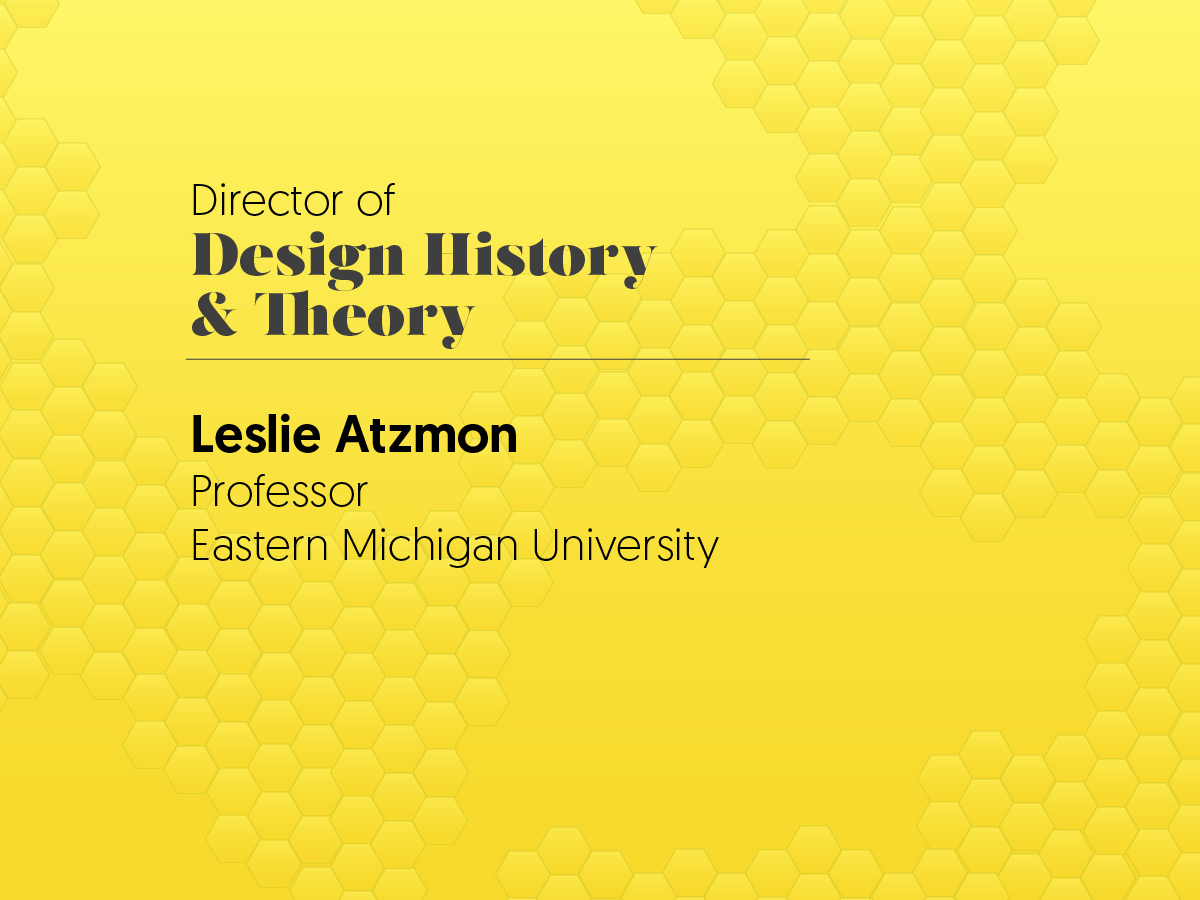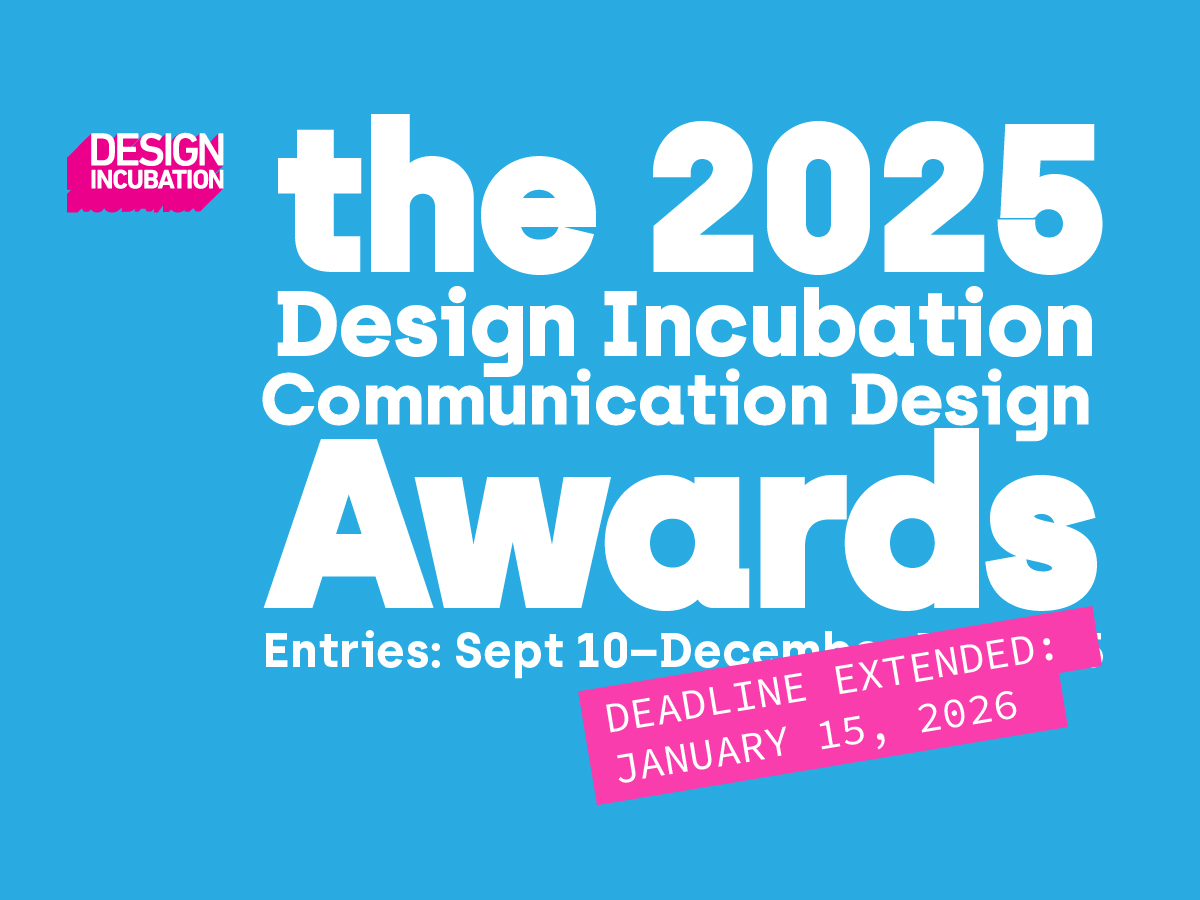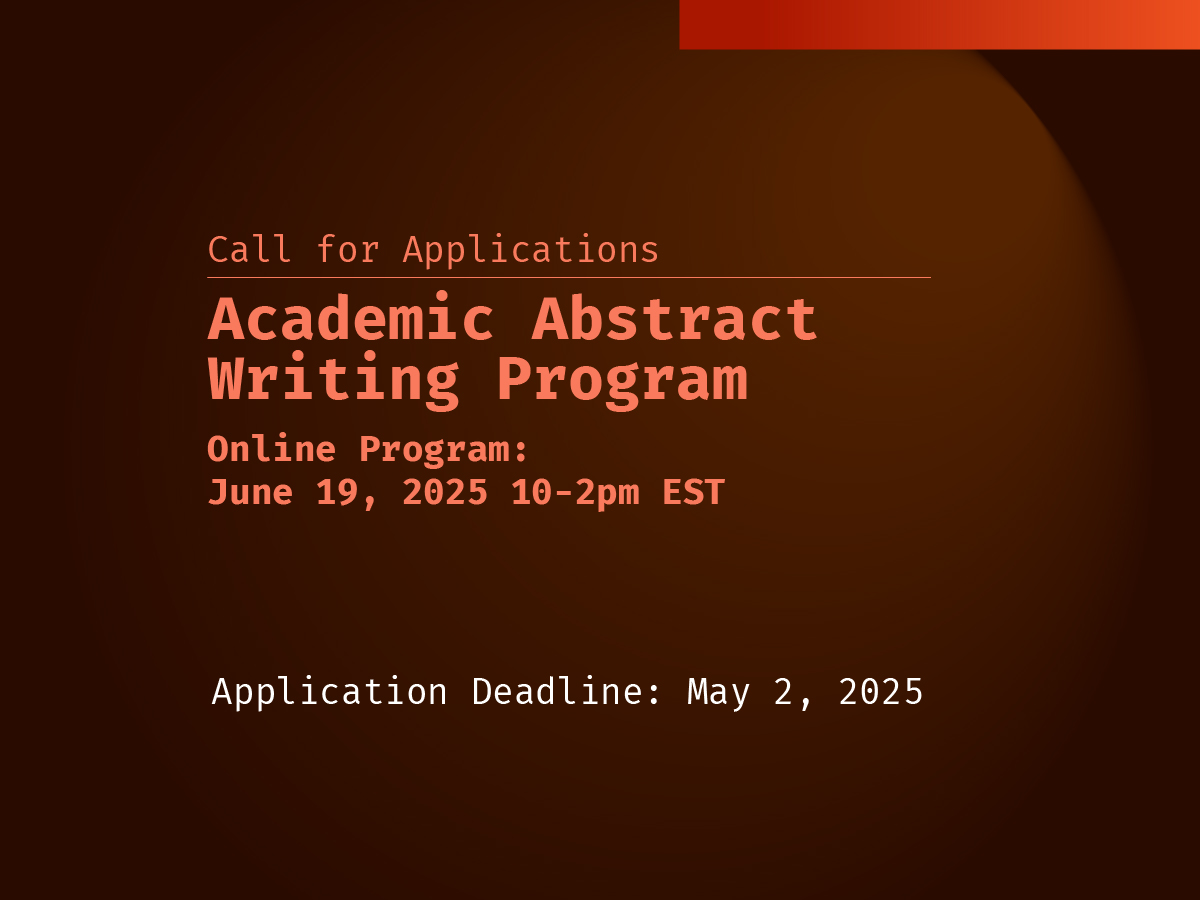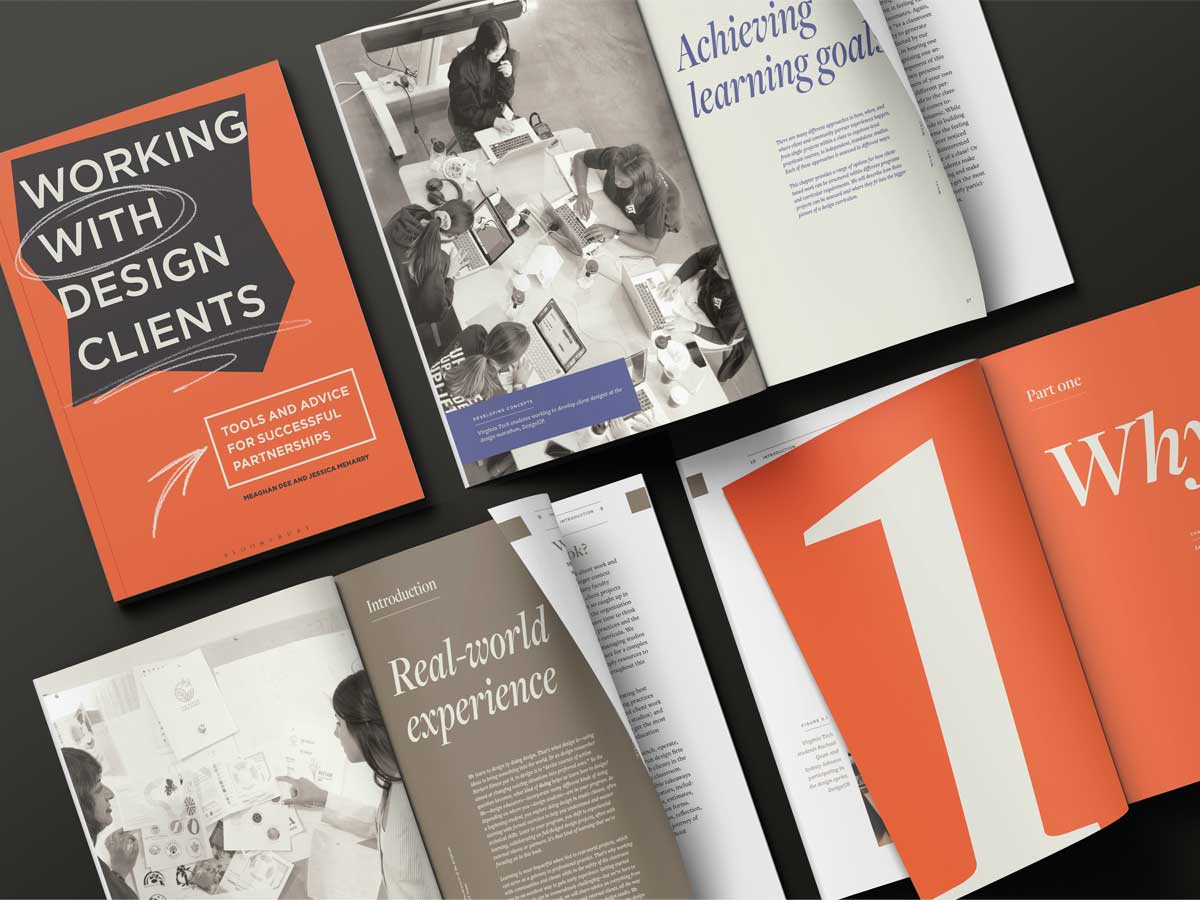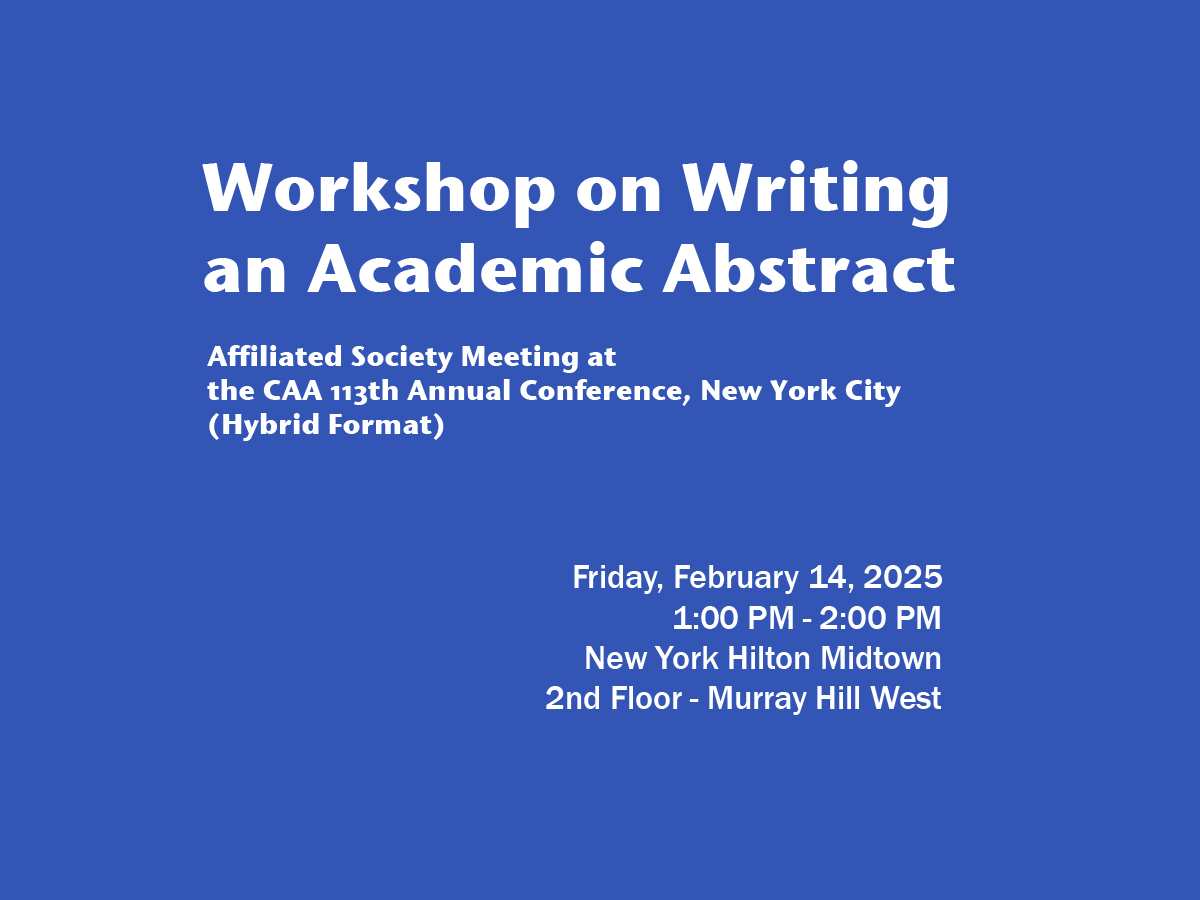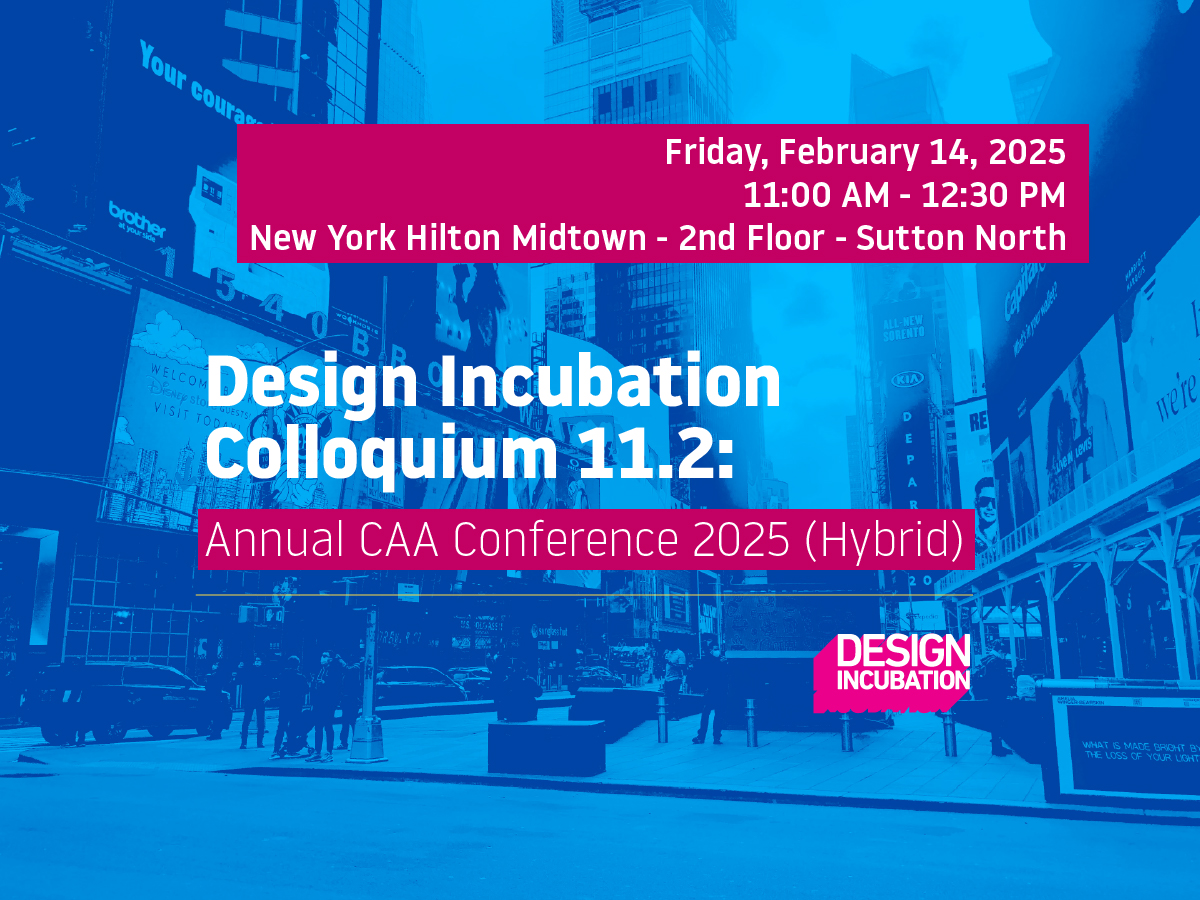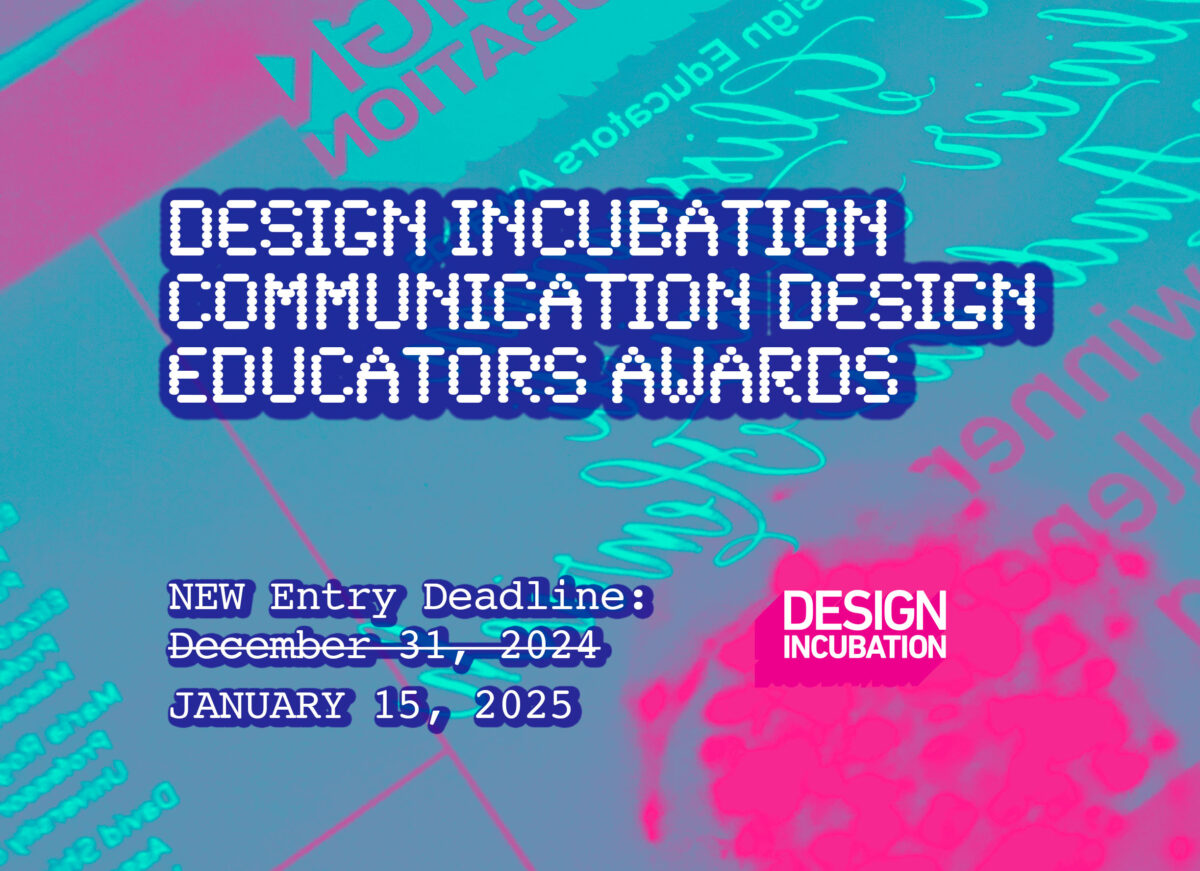ENTRY DEADLINE EXTENDED: JANUARY 15, 2026.
Call for Nominations and Entries for the 2025 Design Incubation Educators Awards Competition.
Design Incubation announces a call for nominations and entries for the 2025 awards for communication design educators in the areas of scholarship, teaching, service. The aim of the awards program is to discover and recognize new scholarship (creative work and publications), teaching, and service in our broad and varied discipline. We hope to expand the design record, promote excellence and share knowledge within the field.
We ask colleagues and mentors to identify outstanding creative work, publications, teaching, and service being created by design educators in the field communication design and to nominate these individuals for an award. Nominations will be accepted until December 31, 2025 January 15, 2026.
Entry Guidelines
Entries will be accepted until (December 31, 2025). Nominations are not required to enter in this scholarly competition. Complete the online entry form (https://designincubation.com/design-incubation-awards-competition-entry-form/) with the following:
Title: Description of project and outcomes (not to exceed 500 words.)
Supporting Materials: (limited to 5-page medium resolution pdf of artwork; web links to websites, videos, other online resources; published documents or visual documents.)
Biography of applicant/s (150 words per applicant.)
Curriculum vitae of applicant/s.
Entry fee: $35.00 USD.
2025 JURY
Steven McCarthy (Chair) University of Minnesota
Leslie Atzmon – https://www.emich.edu/art/faculty-staff/l_atzmon.php
Bernard Caniffe – http://piecestudio.org/case-studies, https://www.design.iastate.edu/profiles/canniffe/
Matt Gaynor – https://www.memphis.edu/artanddesign/people/matthew-gaynor.php
Myra Thiessen –https://www.monash.edu/mada/design/people/myra-thiessen
Leslie Atzmon is a designer, design historian, and design critic. She has published in Eye, Design and Culture, Communication Design, and Design Issues. Atzmon edited Visual Rhetoric and the Eloquence of Design (Parlor Press 2011) and co-edited Encountering Things: Design and Theories of Things (Bloomsbury 2017) with industrial designer Prasad Boradkar. Most recently, she edited The Graphic Design Reader (Bloomsbury 2019) with Teal Triggs of the Royal College of Art. In 2016, she was a Fulbright Fellow at Central Saint Martins in London investigating the topic of Darwin and design thinking. Atzmon and colleague Ryan Molloy were awarded a Sappi Ideas that Matter Grant, which supports design that changes lives for the better. For the grant, students rebranded Ypsilanti’s non-profit Riverside Arts Center as a community arts hub. Atzmon recently curated the exhibition Design and Science, and is currently working on a collection also entitled Design and Science (forthcoming Bloomsbury 2020).
Bernard Canniffe is a current professor and former department chair of graphic design at Iowa State University, and has held faculty positions at MICA (Baltimore), MCAD (Minneapolis) and Ringling College of Art and Design (Sarasota), A native of Wales (UK), he has presented and exhibited on a global scale since earning an MFA from the Savannah College of Art and Design in 1999. PIECE Studio, a creative venture he founded in 2006, is an agency that “engages in and with communities, organizations, activists, governments and municipalities and has run projects and workshops that promote social justice and community empowerment internationally,” primarily through the design of identities, publications and posters.
Matthew Gaynor received his BA and MFA in graphic design from Yale University, and is currently chair of the Department of Art and Design at the University of Memphis. He has held faculty and leadership positions at University of Kansas, California State University at San Bernardino, University of Cincinnati, University of Illinois at Chicago, and Kansas State University. He also served as creative director for F+W Publications, which published HOW magazine. Gaynor has won numerous awards for his design work, which is focused on the intersection of type and image, and continues his practice of typographic design, as well as an ongoing interest in photographic portraiture.
Myra Thiessen is a researcher and senior lecturer at Monash University in Melbourne, Australia and is the program coordinator of the communication design program in the Faculty of Art, Design, and Architecture. She earned a PhD in typography and graphic communication at the University of Reading and a Bachelor of Design degree in communication design from the University of Alberta. She has published her research widely, especially about typography and cognition, in the journals Visible Language, Ergonomics, and The Design Journal among others, and co-edited the book The Routledge Companion to Criticality in Art, Architecture, and Design.
Steven McCarthy is professor emeritus of graphic design at the University of Minnesota, where he taught for over two decades. He earned an MFA from Stanford University and a BFA from Bradley University. His book The Designer As… Author, Producer, Activist, Entrepreneur, Curator and Collaborator: New Models for Communicating was published in 2013. McCarthy’s creative work has been in over 150 juried and invitational exhibitions, and has been awarded inclusion in the AIGA annual, the STA 100 show and in Graphis Poster. He has published in the journals Design Issues, Message, Visible Language, Design and Culture, Visual Communication, and occasionally writes for Eye magazine. In 2017 he was awarded the Minnesota Book Artist Award.
http://stevenmccarthy.design
Like this:
Like Loading...
